Robin Trower - Interview
by Lisa Torem
published: 14 / 2 / 2021
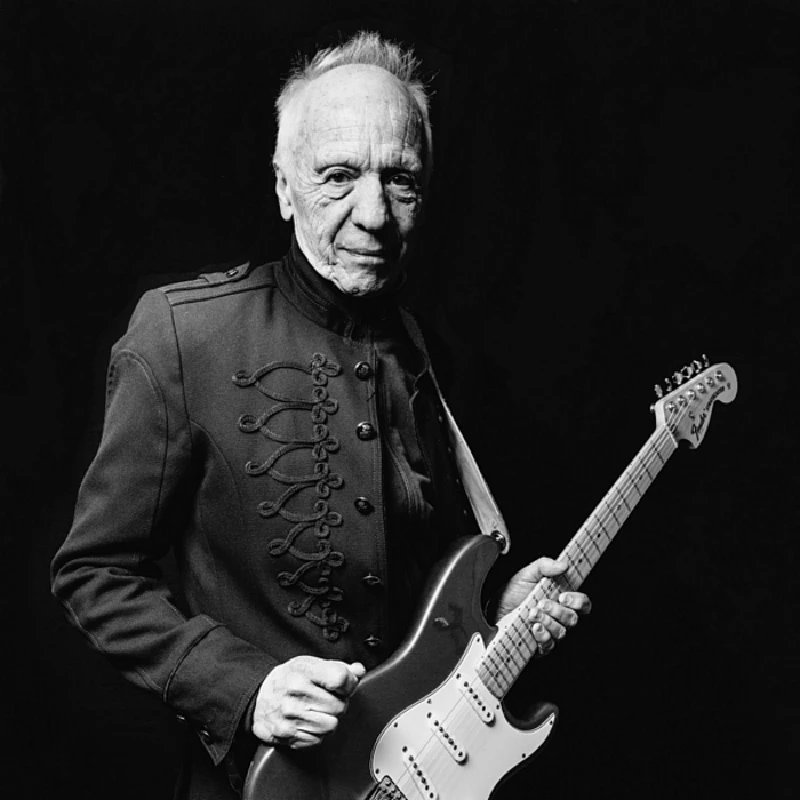
intro
British guitarist/songwriter Robin Trower speaks to Lisa Torem about his collaboration with vocalist Maxi Priest and producer/bassist Livingstone Brown on ‘United State of Mind’.
Where does one begin when composing questions to ask guitarist Robin Trower? Only a few artists alive today can hold a candle to this British statesman’s many accomplishments. Trower played guitar initially with the R & B inflected-Paramounts, but truly launched his career after joining prog-rock band Procol Harem in 1967, on the heels of their hit, ‘A Whiter Shade of Pale’. Realising he wanted to branch out stylistically, he forged a solo career with vocalist/bassist James Dewar and drummer Reg Isidore, then Bill Lordan. His first record, ‘Twice Removed from Yesterday,’ went virtually unnoticed, but his sophomore effort, 1974’s ‘Bridge of Sighs’ soared to number 7 in the U.S. With his bluesy bends, dazzling “wah” effects, enviable tone and passionate songwriting, it wouldn’t take long before he’d fill arenas in major cities across the United States and Europe. Trower has also earned a reputation for being an extremely prolific songwriter in multiple genres, delving into psychedelia, renewing faith in classic rock and Delta blues, and currently, with singer Maxi Priest and producer Livingstone Brown, he’s taken to shredding on original songs that harken back to Curtis Mayfield and B.B. King, whilst celebrating reggae and atmospheric energies. Always an accommodating player, Robin forged successful collaborations with the likes of Jack Bruce and Bryan Ferry, so it was only a matter of time before he’d conjure up magic with contemporary peers. In this interview, Robin Trower opens up about the production of ‘United State of Mind,’ performing with the late Jack Bruce, a lucky and legendary race horse and more. PB: Congratulations on 'United State of Mind’. On your last studio album, ‘Coming Closer to the Day’, you played every instrument except for drums. And similarly, to every other studio album, you’ve surprised us with something new. In a recent video, your producer, Livingston Brown, talked about how he wasn’t sure how you and Maxi would work together, as you are both titans in your respective fields, both very self-contained, but in the studio, you did a lot of sharing. RT: I mean, we did get on very well. There’s no doubt about it. It was a lot of fun to do. Obviously, I’ve always worked with Livi over the years; I just tried to write tunes that I wanted Maxi to sing. He just has a natural ability to do the right thing during a performance. I think, that’s why it worked. PB: You both do these cool bends; you on guitar, Maxi on vocals. There’s a kind of simpatico that comes through the recordings, the way you both put such emotion into the material. Was that something that happened organically during this process? RT: It was a very naturally flowing project. I’ve always loved Maxi’s voice. It’s a magical instrument he’s got. It was really Maxi saying, why don’t we get together? We happened to meet outside Livi’s studio and Maxi said, why don’t we get together and try to write something? So that’s how it started really. Once we’d done one thing, I realised what the formula was that I could use to write music for him. PB: So, this was a co-writing project? RT: The three of us wrote the songs, me, Livi and Maxi. I wrote the music and then the three of us would get together to work on the lyrics. So, I would play the guitar part, what the melody was, the vocal melody, and usually it would be Maxi that would come up with an idea, a phrase, a sentence and we would work it up from there. PB: Was there a political undertone to some of the songs? RT: I think Maxi was concerned about what was going on at the time and I think that came out in some of his lyrical ideas, definitely— ‘Are we Just People,’ in particular, that one. PB: On that song there is a cool call and response between you and Maxi. Was that something planned out or was it random? RT: The thing is, with something like that, I would have the song, and it would have the guitar part, the guitar pitched higher than the vocals, obviously the vocal line he came up with is in response to that guitar part. PB: That speaks to the skill of listening, which is a skill that can be difficult for some musicians to acquire. Of course, you’ve been playing for many years and perhaps it’s become second nature… RT: I think that’s part of Maxi’s gift. He completely bought into the stuff that I was bringing in and he realised what it was and had a go about doing the vocals. That was part of the magic of what he does. PB: ‘On Fire Like Zsa Zsa’ has some complex harmonies and rhythms. How did you come up with the progressions? RT: It’s the same as I write every song really. I start off with just the germ of an idea and keep running at it until I’m happy with it really, and sometimes that sort of sends it down to a more complicated chord sequence or just no chords at all. It’s just what’s right with what you’re trying to do with the initial idea. PB: I’m hearing a lot of influences on this album. Did you sit down with Livi and Maxi to discuss those influences? RT: No. I can’t say we did. I think we eschewed each other’s influences (laughs). Obviously, Maxi has sort of been in a reggae place, you know? And I don’t know anything (laughs) about that kind of music at all. I think he grew up with a lot of the same music that I have. I was in love with all of that rhythm and blues and blues and soul music and all that stuff. I’m sure he’s absorbed a lot of that for him to be able to sing the stuff that I’d been coming up with. PB: ‘Walking Wounded’ feels like more of a classic Delta blues. I love that we can hear your fingers squeak against the fretboard. That really brings us into the room. Was there a production trick going on there? RT: I think it just captured part of the performance really. We started off putting down the guitar to machine drums, computer drums, and then we started working on the lyrics, and as we got the lyrics, Maxi would start to put down the vocal. And we were all there together working on the lyrics and once there was a vocal on there, we’d work on the bass part and put the drums in a little bit later, live drums, and then Livi went away and wrote the orchestrations and that went on quite a bit later. Livi and I mixed it together at his studio. Livi is the engineer. We worked through the mixes together and sent them to Maxi. He had to okay them, you know. PB: Speaking of collaborative work, you worked with the late Jack Bruce on five albums. I was watching a video of you both performing ‘Seven Moons’. You seemed to be having such a great time, really appreciating each other’s contributions. What do you recall that was special about performing with Jack? RT: It started really because I’m such a big fan of Jack. His singing and bass playing were dynamite, basically, and very thrilling to play along with. We were most happy with that ‘Seven Moons’ album out of all the stuff we did together because we co-wrote all the songs, phrased it together and put it down together, sort of thing, so I think we were happy with that. PB: You always seemed at home with that “power-trio” format. Do you see ‘United State of Mind’ as a return to that form? RT: I don’t see it that way. No, I don’t see it, because a power trio usually is bass, drums and guitar. This is guitar, voice, bass sort-of thing and then the drums come in later, so it’s a different kind of thing. PB: In terms of using effects, with ‘Bridge of Sighs’, many of us associate that song with a particular effect. Are there times when you might play that song without those effects, or do you consider them sort of married? RT: I think the recording of that is a live version with sound effects overlaid, so playing it live, it’s still the fundamental thing. You know, you don’t get quite the production doing it live. It’s a powerful piece in its own right. PB: I was very tickled to hear how you titled it. One summer, when I was in Venice with my family, I pointed the bridge out and excitedly told them about your song. But then, I read that you actually took the name from a race horse… RT: (Laughs) To be fair, that race horse was named after that bridge. It’s once removed from Venice. I was looking for a phrase from that song and I happened to open the paper to the sports page and it said, "Bridge of Sighs to win." So, I thought, it’s such a great phrase and that’s where that came from. PB: In ‘Too Rolling Stoned,’ you begin with this scratching sound. I guess, you’d call it dampening the strings? RT: It’s just something that came naturally to me. It’s playing rhythm but deadening a lot of the strokes. To me, it’s a bit like a brass section but with guitar chords, a bit like brass Stacks, and I kept the rhythm going underneath that. PB: I saw you play at the Copernicus Centre in Chicago a few years back. You create such intimacy when you perform. You’ve said that you don’t want to play the big arenas. You want that connection with the audience. And when we watch you play, there’s such a deep focus. How did you acquire that sense of focus? Was it always there? RT: I think it’s something that comes naturally. Once I start playing, I’m just sort of in there. That is a gift in itself. I think it's part of the creativity really, the intense kind of involvement with what you’re doing. PB: And how much does the energy of the audience feed into this? Or not? RT: It does. It definitely plays a lot into it. That’s the draw of wanting to play live is that you can get some place that you can’t get without an audience. PB: A lot of young people are attracted to guitars, initially, until they realise that to excel, one has to make sacrifices: give up activities and so forth. Looking back at your childhood, what gave you the determination to excel as a guitarist? RT: (Laughs). It wasn’t like that for me, actually. No, I didn’t really start to work at it until I formed the first band with Reg Isidore and James Dewar and then I started to get really serious about working on it. Then I started to write more pieces of music, and I think it just needed a lot more work, the guitar arrangements; lead work, I had to work more hours at it, as it were. PB: Did you family encourage you to play? RT: Yeah. Well, they certainly didn’t discourage it. They didn’t think, when I first started, that it could be something I could actually earn a living from. I think, maybe that took them by surprise a little bit. PB: You have mentioned James Brown as an influence, yet he was a vocalist. How do you go about translating that type of skill into the guitar? RT: If you hear, ‘James Brown: Live at the Apollo’ and he goes into a long, what I would call, jam, where he’s jamming with his vocals - sometimes the mood, the freedom, the soulfulness of it, I think it’s set into my music. That’s the kind of thing, maybe, occasionally, I’m reaching for, that soulful, freeing, lovely atmosphere. So, I think that’s why that album of his was so influential because it was something that hadn’t really happened before. PB: Often, when fans and critics talk about your music, they use the words, “tone” and “space.” Can you describe what those terms means to you? RT: Well, I work very hard on tone, very, very hard on the tone, trying to get the right tone (Laughs). In fact, I’m always messing about with it, trying to perfect it, because you never get there but you know it’s part of the fun. And did you say, space? I think that’s just sort of my natural phrasing; leaving a gap. I’ve been asked about this before and I’ve never really thought about it, but I think if you hit a really lovely note, even though you stop playing it, you want to let it ring in the music. It’s very hard to say exactly why that happens but there’s a lot of Albert King, and B.B. King influence in the phrasing. PB: And your advice to new musicians is generally, don’t borrow too much; don’t copy note for note. But some teachers advise their students specifically to do that in training. Play note for note and then break the rules. But you’re saying, break all the rules first… RT: Well, I never copied anybody’s licks, never sat down and worked out what B.B. King’s licks actually were. I was always more interested in what is the feeling behind his playing or Albert King or Jimi Hendrix. I try to encourage learners not to copy too much of their heroes because I think it might put up a block of them actually expressing themselves. You know, if you get too far into other peoples’ stuff, you might never find out what it is you’ve got to say. PB: Everything this year got discombobulated due to Covid. You’d been planning to promote your new album with a tour. Will you carry through with your plans later on? RT: Well, I was supposed to tour now in the U.S., with a new album in the can, you see, but that’s been put off until next fall, by which time my new album should be out. I don’t think of my project with Maxi as being my album. That’s not a solo album. We just got together to do that as a one-off,= really. PB: And what can you tell us about this other studio album? RT: Um… it’s good. (pause). I can’t really tell you much about it. PB: I get it. RT: I don’t think it’s a million miles away from the last album I did, ‘Coming Closer to the Day’, but I’m using on most of the songs. I’ve written a lot of the songs for Richard Watts, who is the vocalist and bass player I use live, so that’s going to be different. He’s another guy with a great voice, a lovely voice. I’ve written some songs specifically for him to sing. PB: When you say that you’ve written a song specifically for a vocalist, what do you mean by that? RT: Well, you have to know the key, what are their best keys, what melodies suit them, that kind of thing. That would be writing for Richard, for instance, a completely different key, a different register altogether to writing for myself, so obviously playing in a completely different key changes what you can do with a guitar. In other words, I have to start off coming up with ideas for songs in Richard’s key and the same thing certainly for Maxi. I knew what his range was. I made sure what I was writing was in his key or near to it. PB: When you walk down the street, whether you’re in the country or in the city, how do you process the sounds around you? RT: I don’t think I do. I think if I’m walking...I live on the edge of the countryside, I’m usually working on a song so I’m either thinking about the lyrics or the melody (Laughs). That’s usually what’s going through my head. PB: So, if there are some birds tweeting, you’re not going to nab that melody? RT: No. PB: Is there a favourite guitar among your Strat’s? RT: There’s one I’m playing at the moment that is my favourite but I tend to switch between them. I’ve got three or four that I really like. They’re all built for me by Fender. They’re all my signature model. Every guitar has its own character. PB: Well, if you woke up tomorrow, Robin, and one of those Strat’s became a human being, what kind of characteristics would that new person have? RT: It would be very musical and soulful and quite good-looking. PB: Thank you.
Band Links:-
https://twitter.com/robintrowerhttp://www.trowerpower.com/
https://www.facebook.com/RobinTrower
http://robintrower.ning.com/
https://www.instagram.com/robintroweruk/?hl=en
Play in YouTube:-
Have a Listen:-
Picture Gallery:-
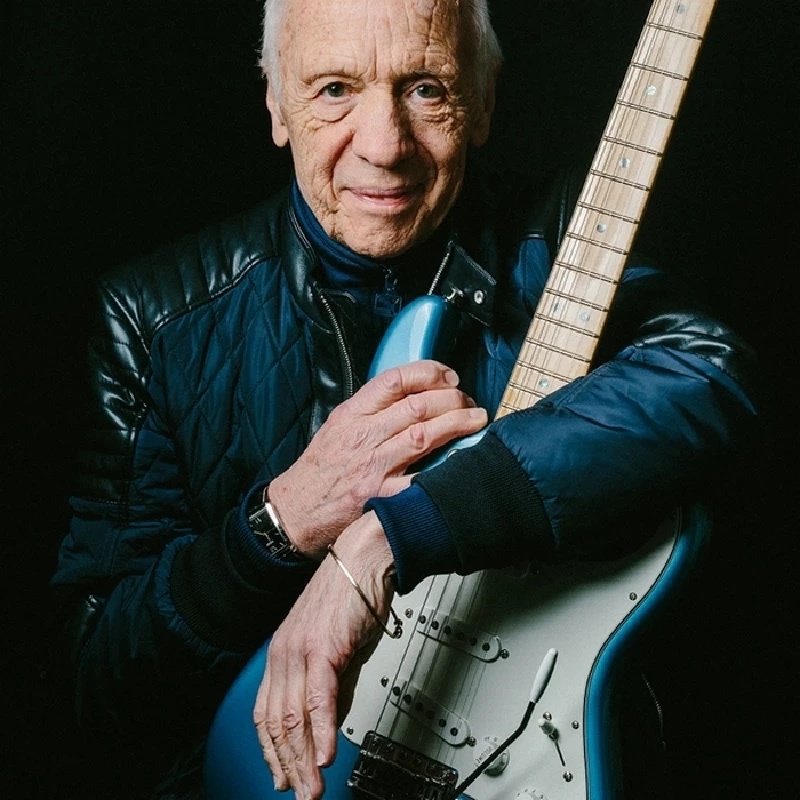
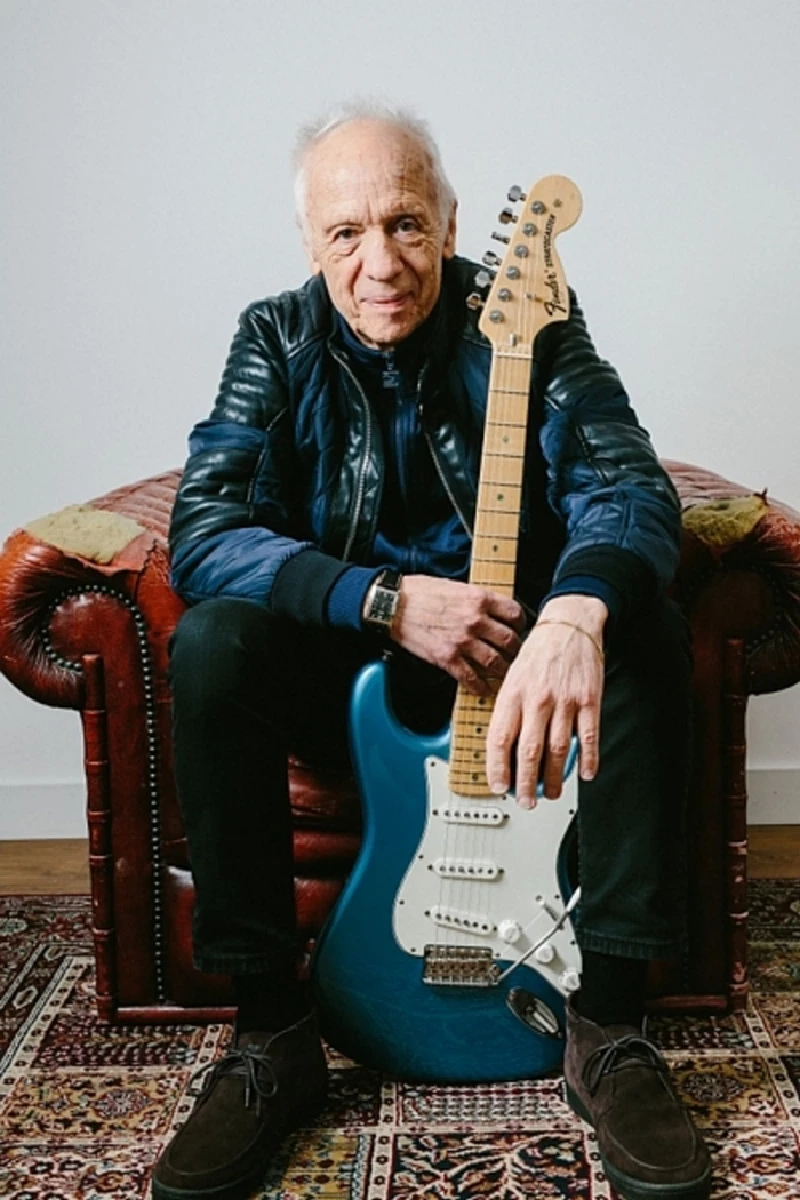
interviews |
|
Interview (2024) |
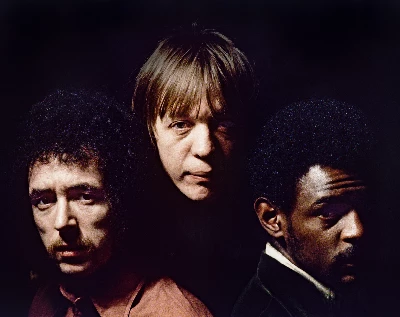
|
| When British guitarist/songwriter Robin Trower tours the UK and the US in 2024, he will feature songs from his 1974 gold record, ‘Bridge of Sighs,’ which is being meticulously reissued in May. Lisa Torem talks to him about the tour and the reissue. |
profiles |
|
Robin Trower (2011) |
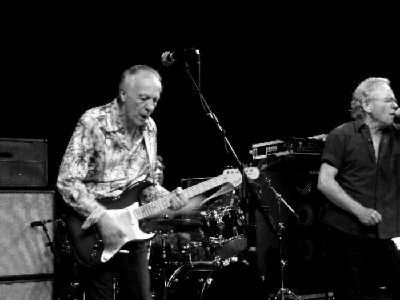
|
| With three of former Procul Harum guitarist Robin Trower's albums, ‘What Lies Beneath’, ‘Another Day’s Blues’ and ‘20th Century Blues’, being re-released, Lisa Torem assesses each of them |
live reviews |
|
Copernicus Center, Chicago, 29/4/2017 |
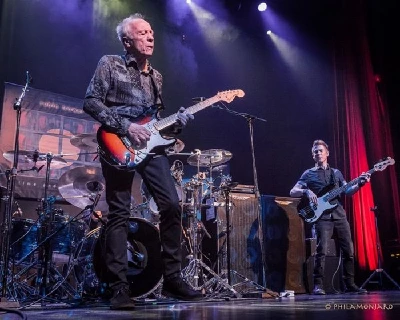
|
| Time stands still for Lisa Torem when Robin Trower and his trio perform at Chicago’s Copernicus Center. |
favourite album |
|
For Earth Below (2025) |
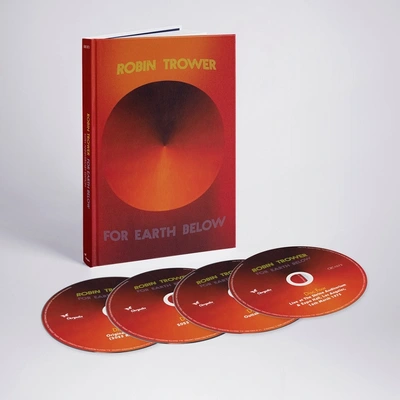
|
| Lisa Torem reflects on former Procol Harum guitarist Robin Trower's 1975 album 'For Earth Below' which has just been released in a 50th Anniversary edition. |
soundcloud
reviews |
|
Where You Are Going To (2016) |
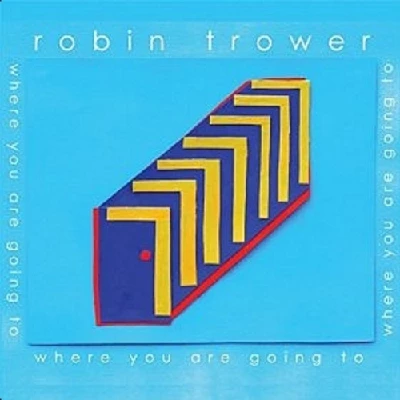
|
| Introspective, vibrant and not-to-be-missed latest album from ex-Procul Harum guitarist, Robin Trower |
| Compendium 1987-2013 (2014) |
| The Playful Heart (2011) |
| What Lies Beneath (2009) |
| RT@RO 08 (2009) |
most viewed articles
current edition
John McKay - InterviewCathode Ray - Interview
Robert Forster - Interview
When Rivers Meet - Waterfront, Norwich, 29/5/2025
Spear Of Destiny - Interview
Fiona Hutchings - Interview
Carl Ewens - David Bowie 1964 to 1982 On Track: Every Album, Every Song
Chris Wade - Interview
Shrag - Huw Stephens Session 08.12.10 and Marc Riley Session 21.03.12
Brian Wilson - Ten Songs That Made Me Love...
previous editions
Heavenly - P.U.N.K. Girl EPBoomtown Rats - Ten Songs That Made Me Love....
Manic Street Preachers - (Gig of a Lifetime) Millennium Stadium, Cardiff, December 1999
Allan Clarke - Interview
Oasis - Oasis, Earl's Court, London, 1995
Barrie Barlow - Interview
Beautiful South - Ten Songs That Made Me Love...
Pixies - Ten Songs That Made Me Love...
Chuck Prophet - Ten Songs That Made Me Love...
Dwina Gibb - Interview
most viewed reviews
current edition
Peter Doolan - I Am a Tree Rooted to the Spot and a Snake Moves Around Me,in a CircleVinny Peculiar - Things Too Long Left Unsaid
Garbage - Let All That We Imagine Be The Light
Vultures - Liz Kershaw Session 16.06.88
John McKay - Sixes and #Sevens
Little Simz - Lotus
HAIM - I Quit
Pulp - More
Lapsley - I'm a Hurricane, I'm a Woman In Love
Billy Nomates - Metalhorse
Pennyblackmusic Regular Contributors
Adrian Janes
Amanda J. Window
Andrew Twambley
Anthony Dhanendran
Benjamin Howarth
Cila Warncke
Daniel Cressey
Darren Aston
Dastardly
Dave Goodwin
Denzil Watson
Dominic B. Simpson
Eoghan Lyng
Fiona Hutchings
Harry Sherriff
Helen Tipping
Jamie Rowland
John Clarkson
Julie Cruickshank
Kimberly Bright
Lisa Torem
Maarten Schiethart